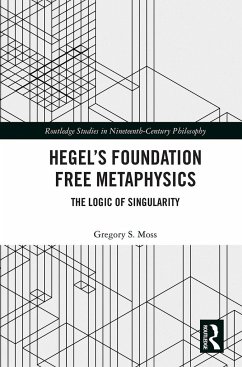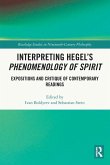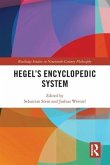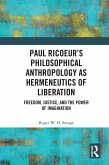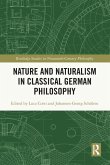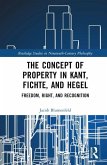Winner of the hegelpd-prize 2022
Contemporary philosophical discourse has deeply problematized the possibility of absolute existence. Hegel's Foundation Free Metaphysics demonstrates that by reading Hegel's Doctrine of the Concept in his Science of Logic as a form of Absolute Dialetheism, Hegel's logic of the concept can account for the possibility of absolute existence. Through a close examination of Hegel's concept of self-referential universality in his Science of Logic, Moss demonstrates how Hegel's concept of singularity is designed to solve a host of metaphysical and epistemic paradoxes central to this problematic. He illustrates how Hegel's revolutionary account of universality, particularity, and singularity offers solutions to six problems that have plagued the history of Western philosophy: the problem of nihilism, the problem of instantiation, the problem of the missing difference, the problem of absolute empiricism, the problem of onto-theology, and the third man regress. Moss shows that Hegel's affirmation and development of a revised ontological argument for God's existence is designed to establish the necessity of absolute existence. By adopting a metaphysical reading of Richard Dien Winfield's foundation free epistemology, Moss critically engages dominant readings and contemporary debates in Hegel scholarship. Hegel's Foundation Free Metaphysics will appeal to scholars interested in Hegel, German Idealism, 19th- and 20th-century European philosophy, metaphysics, epistemology, and contemporary European thought.
Contemporary philosophical discourse has deeply problematized the possibility of absolute existence. Hegel's Foundation Free Metaphysics demonstrates that by reading Hegel's Doctrine of the Concept in his Science of Logic as a form of Absolute Dialetheism, Hegel's logic of the concept can account for the possibility of absolute existence. Through a close examination of Hegel's concept of self-referential universality in his Science of Logic, Moss demonstrates how Hegel's concept of singularity is designed to solve a host of metaphysical and epistemic paradoxes central to this problematic. He illustrates how Hegel's revolutionary account of universality, particularity, and singularity offers solutions to six problems that have plagued the history of Western philosophy: the problem of nihilism, the problem of instantiation, the problem of the missing difference, the problem of absolute empiricism, the problem of onto-theology, and the third man regress. Moss shows that Hegel's affirmation and development of a revised ontological argument for God's existence is designed to establish the necessity of absolute existence. By adopting a metaphysical reading of Richard Dien Winfield's foundation free epistemology, Moss critically engages dominant readings and contemporary debates in Hegel scholarship. Hegel's Foundation Free Metaphysics will appeal to scholars interested in Hegel, German Idealism, 19th- and 20th-century European philosophy, metaphysics, epistemology, and contemporary European thought.
"Hegel stands out for having expressly linked the logic of singularity with the autonomy of thought that can liberate reason from the given and enable philosophy to be self-determining and fully self-responsible. Few subsequent commentators on Hegel's work have focused on this connection, obscuring how Hegel develops a foundation free metaphysics in which the logic of freedom coincides with the logic of the concept. Gregory Moss' Hegel's Foundation Free Metaphysics is an ambitious exception to this neglect. Moss offers us a comprehensive enlightening journey through the seminal turning points in the history of Western Philosophy, exposing how the recurring efforts to overcome dogmatic presuppositions has dovetailed with the attempts to unravel the relation between the universal and the singular."
Richard Dien Winfield, University of Georgia
"One does not have to leaf through the pages of Hegel's Logic at great length to see that Hegel regularly appears to endorse explicit contradictions. Of course, most commentators, inspired by an Aristotle-derived horror contradictionis, have had to maintain that he did not mean these things literally, for fear of making him appear irrational. Contemporary dialetheism has shown that endorsing contradictions is not the bogey-man that it has been cracked up to be. Moss' book is the first commentary on Hegel's metaphysics which draws on developments in contemporary dialetheism. As such, it shows us Hegel in a very new and-it seems to me-much more authentic light."
Graham Priest, CUNY Gradate Center and the University of Melbourne
"Gregory Moss offers us a challenging and mature reflection on the metaphysical implications of Hegel's claim to offer a foundation-free philosophy. The seriousness of its overall argument asks for our attentive consideration of its praiseworthy illumination of Hegel's intentions. The book is written with impressive intelligence, wide ranging reference and in a thoughtful manner that philosophically engages the reader. Arguing against the evacuation of Hegel's thought of metaphysical significance, Gregory Moss invites us to take seriously dimensions of that thought that are underplayed by, or written out of, recent influential commentary in Anglo-American treatments of Hegel. This book takes leave of the beige Hegelianism that perhaps has become too common. Very warmly recommended."
William Desmond, David Cook Chair in Philosophy, Villanova University, USA
"Hegel's Foundation Free Metaphysics is a multifaceted book. It is undoubtedly an outstanding contribution to Hegel scholarship thanks to its thoroughgoing reconstruction of Hegel's doctrine of the concept. Gregory Moss's book is, however, not just a commentary on Hegel; its examination of the Absolute and the concept of the concept makes it a comprehensive and original work on metaphysics and philosophy of logic."
Emre Ebeturk, Phenomenological Reviews
"Hegel's Foundation Free Metaphysics does offer an extremely coherent and well-argued account of some of the most important theoretical issues in the history of metaphysics. By doing so, it succeeds at showing the ground-breaking nature of Hegel's approach to logic and provides a very original interpretation of the Doctrine of the Concept. It is an ambitious example of Hegelian scholarship, but it is also a very good example of a truly Hegelian approach to philosophy today."
Alessandro De Cesaris, Phenomenological Reviews
Richard Dien Winfield, University of Georgia
"One does not have to leaf through the pages of Hegel's Logic at great length to see that Hegel regularly appears to endorse explicit contradictions. Of course, most commentators, inspired by an Aristotle-derived horror contradictionis, have had to maintain that he did not mean these things literally, for fear of making him appear irrational. Contemporary dialetheism has shown that endorsing contradictions is not the bogey-man that it has been cracked up to be. Moss' book is the first commentary on Hegel's metaphysics which draws on developments in contemporary dialetheism. As such, it shows us Hegel in a very new and-it seems to me-much more authentic light."
Graham Priest, CUNY Gradate Center and the University of Melbourne
"Gregory Moss offers us a challenging and mature reflection on the metaphysical implications of Hegel's claim to offer a foundation-free philosophy. The seriousness of its overall argument asks for our attentive consideration of its praiseworthy illumination of Hegel's intentions. The book is written with impressive intelligence, wide ranging reference and in a thoughtful manner that philosophically engages the reader. Arguing against the evacuation of Hegel's thought of metaphysical significance, Gregory Moss invites us to take seriously dimensions of that thought that are underplayed by, or written out of, recent influential commentary in Anglo-American treatments of Hegel. This book takes leave of the beige Hegelianism that perhaps has become too common. Very warmly recommended."
William Desmond, David Cook Chair in Philosophy, Villanova University, USA
"Hegel's Foundation Free Metaphysics is a multifaceted book. It is undoubtedly an outstanding contribution to Hegel scholarship thanks to its thoroughgoing reconstruction of Hegel's doctrine of the concept. Gregory Moss's book is, however, not just a commentary on Hegel; its examination of the Absolute and the concept of the concept makes it a comprehensive and original work on metaphysics and philosophy of logic."
Emre Ebeturk, Phenomenological Reviews
"Hegel's Foundation Free Metaphysics does offer an extremely coherent and well-argued account of some of the most important theoretical issues in the history of metaphysics. By doing so, it succeeds at showing the ground-breaking nature of Hegel's approach to logic and provides a very original interpretation of the Doctrine of the Concept. It is an ambitious example of Hegelian scholarship, but it is also a very good example of a truly Hegelian approach to philosophy today."
Alessandro De Cesaris, Phenomenological Reviews

